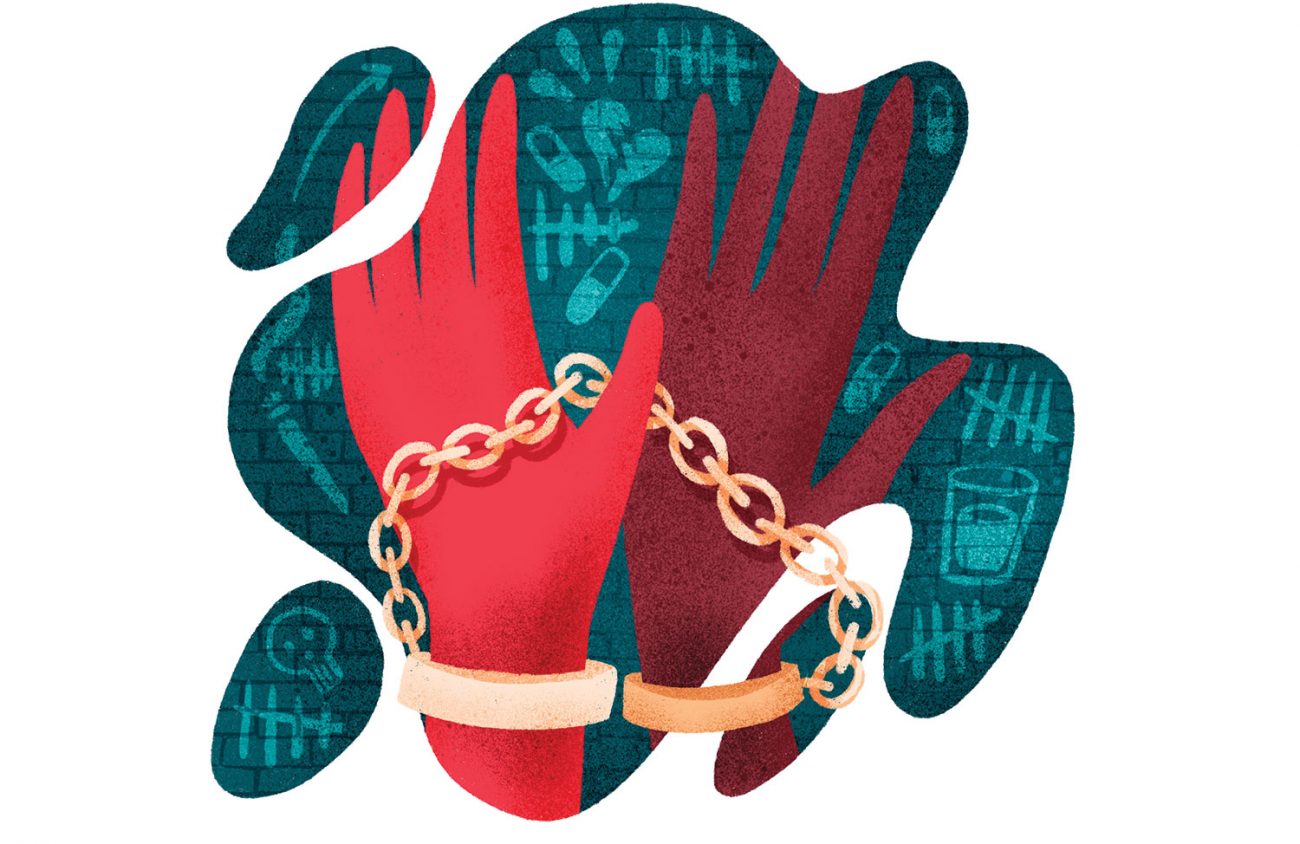By Michael 2
At this very moment, I am mad at my friend “Tommy.”
Two things that you should know about me:
I seldom get mad.
I call very few people “friend.”
Thirty minutes before he was to have dinner with his daughter as part of a prison Family First event that allows inmates to spend extra time with their kids, Tommy was handcuffed and taken to segregation as punishment. He had been woken up at 5 am for a “random UA” (urine analysis), and his urine had tested dirty.
Tommy had gotten sloppy, and he knew it. What had started as a “one time only” Suboxone high, just to relax, had turned into a habit. Suboxone is used to ease opioid addiction, but it can be addictive itself. He was using money sent from his family to support his now multiple-times-a-week high. He slept more, he was irritable and he spent as little time at his job as possible.
At the Family First event that evening, Tommy’s sister and daughter waited in the visiting room for a dinner that never would happen. His 5-year-old daughter, who had never seen her daddy outside of a prison visiting room, was told by a stranger that Daddy wasn’t coming.
Tommy is a veteran. He is a Marine who suffered a severe elbow injury on duty, contracted MRSA after a botched operation and was sent home with a prescription for opioid painkillers. Then another doctor prescribed fentanyl patches. It was a quick path to addiction. When the patches weren’t enough, he turned to robbing pharmacies for extra painkillers. He got caught. He was sentenced to a 10-year prison sentence. His is an all-too-common story.
Why I am mad at Tommy is that in three months he was to have been released to a minimum-security prison with the opportunity to work within the community.
Because of that dirty UA, he will spend at least 30 days in segregation, lose the special-honor housing he had worked four years to get into and lose whatever good time he has accrued in the past six months. His move to a minimum-security facility will be delayed at least a year. And for the next year, he will interact with his visitors from behind a glass partition.
Although he has never seen his daughter except in a prison visiting room, at least there was no glass between them. They could play in the outside playground. She could come to these special Family First meals. Now that opportunity has ended.
I don’t understand why the cost of Tommy’s high is so high. I don’t understand why his untreated addiction gets him thrown in the hole. I don’t understand why it seems to be as easy to get drugs in prison as it is on the streets. I don’t understand why there isn’t a safe place for an inmate struggling with addiction to go, someone to talk to if they have messed up.
Part of my work in prison is escorting mental health inmates to meetings. I work in a special housing unit populated by 40 guys from 18 to 80, some with severe schizophrenia, some who after a lifetime of both physical and sexual abuse are no more than shells of men, some who have struggled for decades with addiction. They are warehoused here.
One of those meetings I take the men to is Narcotics Anonymous. I see volunteers come into the prison to help run the meetings who have been clean for decades. After Tommy gets out of the hole, maybe he will go to NA meetings. Maybe he will learn from his mistake. Maybe he will acknowledge that he can’t beat this alone. My anger turns to sadness, which turns to prayer. I pray that Tommy comes through this mess — that he sees there are people inside and outside he can count on. ν
Michael 2 is an inmate at a maximum security prison in Oregon. “Tommy” is a pseudonym used to protect privacy.
